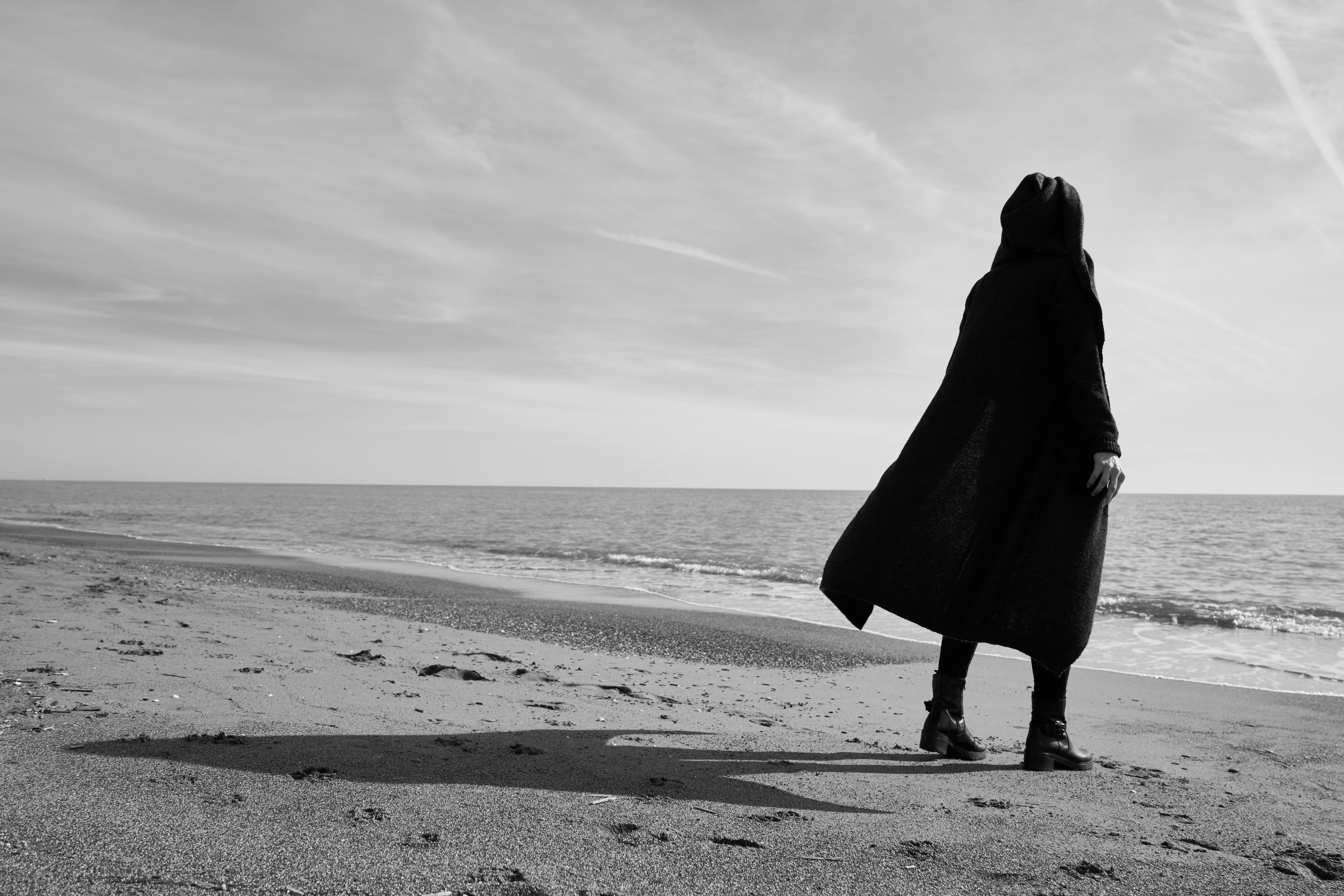
~We’re thrilled to welcome a guest voice to our blog today! From time to time, we feature inspiring perspectives from fellow creatives, seekers, and thinkers who bring fresh insights and stories to share. Please enjoy this special contribution from our guest writer:
C.Faye Alexander
I didn’t even know I was carrying a rock. I just thought I was broken—that everything I did was somehow wrong. That no matter how hard I tried, I’d always find a way to mess things up. I was convinced that I was defective at my core.
How else could I explain the way life always felt so painful, so exhausting, so impossible to navigate? This rock lived inside me—silent and invisible, but always there. I couldn’t see it, but I felt it in everything.
The way I slouched under the weight of shame.
The way I avoided my reflection in the mirror.
The way I winced whenever someone tried to love me.
Why did it feel like I couldn’t stand up straight, even when I wanted to? Even when I tried to? Even after I surrendered—after I admitted out loud that I had a drinking problem and reached out for help—something still didn’t settle. I still had moments when I wanted to disappear, to run, to quit.
There were days I showed up sober and still felt sick inside.
I still felt angry.
Guilty.
Ashamed.
Afraid.
Afraid of what, exactly? I wasn’t sure. Afraid of myself, maybe. Of being seen.
I thought putting down the bottle would be the cure. I thought that once I got sober, everything would click into place. My life would get easier. I would start to feel free for the very first time in my life.
But here’s the part no one really warns you about: the drinking wasn’t the core issue.
It was the symptom.
The mask.
The coping tool.
The real issue?
That was my thinking.
My beliefs.
The stories I told myself.
The real issue was the girl inside me still carrying that old, invisible rock.

The Quiet Surprise of Letting Go
Maybe your rock isn’t an addiction.
Maybe it’s the grudge you’ve held for years.
Maybe it’s the guilt of something you did—or didn’t do.
Maybe it’s the voice in your head that whispers you’re not enough.
Not strong enough.
Not lovable enough.
Not good enough.
Maybe your rock is the abortion you never told anyone about.
Maybe it’s the loss of a loved one, taken too soon.
Maybe it’s the affair.
The lie.
The time you didn’t show up.
Maybe it’s the job you quit without warning.
Maybe it’s the debt you buried.
Maybe it’s the night you drank too much and said things you can’t take back.
Maybe it’s the time you needed help and didn’t ask.
Or the time you did, and no one came.
Whatever your rock is, here’s the truth:
Most of us carry one.
And sometimes, we carry it so long that it becomes part of us.
That weight turns into posture.
An ache in your chest, tension in your shoulders.
That dread when you wake up in the morning?
That dread is often dismissed as just stress.
Just aging.
Just life.
But sometimes, it’s not.
Sometimes, it’s the silent burden of unforgiveness toward yourself or someone else.

So, what does it mean to set the rock down?
It doesn’t mean pretending the pain isn’t real.
It doesn’t mean saying, “It’s all okay now.” It doesn’t mean forgetting, or excusing, or erasing.
It means choosing, moment by moment, to stop punishing yourself for being human. To stop bleeding for things you’ve already paid for.
There are moments in my day when I need to pause, to turn everything around me off, and return to that still, inner voice that says:
“Let it go.”
Sometimes it’s a whisper.
Sometimes it’s a shout.
Sometimes it’s the reminder I have set on my phone that goes off every morning at 8:00 am and reads, “You have thoughts, but they don’t have you.”
Every time, it’s an invitation to loosen your grip.
To breathe a little deeper.
To be a little softer with yourself.
To say, “I don’t have to carry this anymore.”
I once read something that stayed with me:
“The heavier the stone, the less noise it makes when it hits the ground.”
It’s not an old proverb — it’s actually rooted in physics. The weight of an object affects the way it lands. A small pebble clinks and bounces. But a heavy stone falls with a deep, quiet thud.
Isn’t that how it feels when we finally release the things we’ve carried for so long?
We expect it to be dramatic — an explosion of emotion, an unraveling, something completely chaotic.
Sometimes we fear that letting go will break us, but more often, it’s the holding on that does. Like a slow-growing cancer, resentment, shame, anger, and its ugly sidekick bitterness take root—and before we know it, they’ve wrapped themselves around everything we are.
But when we finally let go…
It’s often (unexpectedly) quiet.
Soft.
Sacred.
Like a breath we didn’t realize we’d been holding.
Like the sound of our own heartbeat, steady and alive.
Because the truth is:
The heaviest things we carry are often the ones we never speak of.
And when we finally release them — really, truly let them go — they don’t make the noise we feared — they create space.
Space for healing.
Space for peace.
Space for something new to begin.
If you’re standing at the edge of that moment — if you’re scared of what might happen if you finally say it, face it, admit it, release it — this is your reminder:
When that heavy rock finally slips from your hands, it doesn’t shatter the world.
It settles.
Quietly.
Like it always belonged to the earth, and not to you.

If any part of this story stirred something in you—if you’ve been carrying your own invisible rock—there are two books that have supported me deeply in my own healing:
Drop the Rock: Removing Character Defects – Steps Six and Seven by Bill P., Todd W., and Sara S.
This book helped me understand that recovery isn’t just about quitting a substance—it’s about learning to release what no longer serves us. It helped me name the inner burdens I was carrying and showed me how to begin letting go.
The Language of Letting Go by Melody Beattie
I turn to this book often. It’s full of gentle, daily meditations that remind me I am allowed to forgive myself, to slow down, and to grow at my own pace. It’s been a quiet companion on the hard days.
You can explore them here:
Letting go isn’t easy—but it is possible. And it doesn’t always come with noise. Sometimes, it falls quietly.
A bit about the author C. Faye Alexander:
Charity Faye Alexander is a writer and spoken word artist based in San Pedro, California. She is currently working on a memoir and finds inspiration through sketching, painting, and live performance. With a deep love for storytelling in all its forms, she also enjoys walking dogs, studying accents, and analyzing powerful films. Charity has traveled across the U.S. in search of purpose and now finds herself rooted by the sea. When she’s not writing, she’s outdoors—chasing sunshine, ocean air, and her next creative spark.
See More About Tiny Art Stories Here

Jessica
May 9, 2025 at 9:18 am - 7 months ago